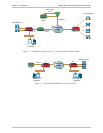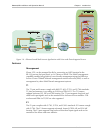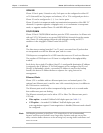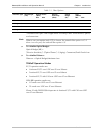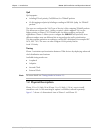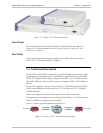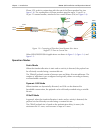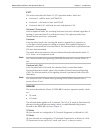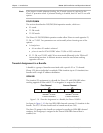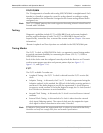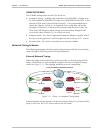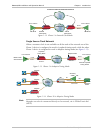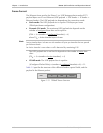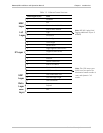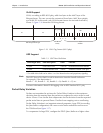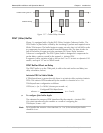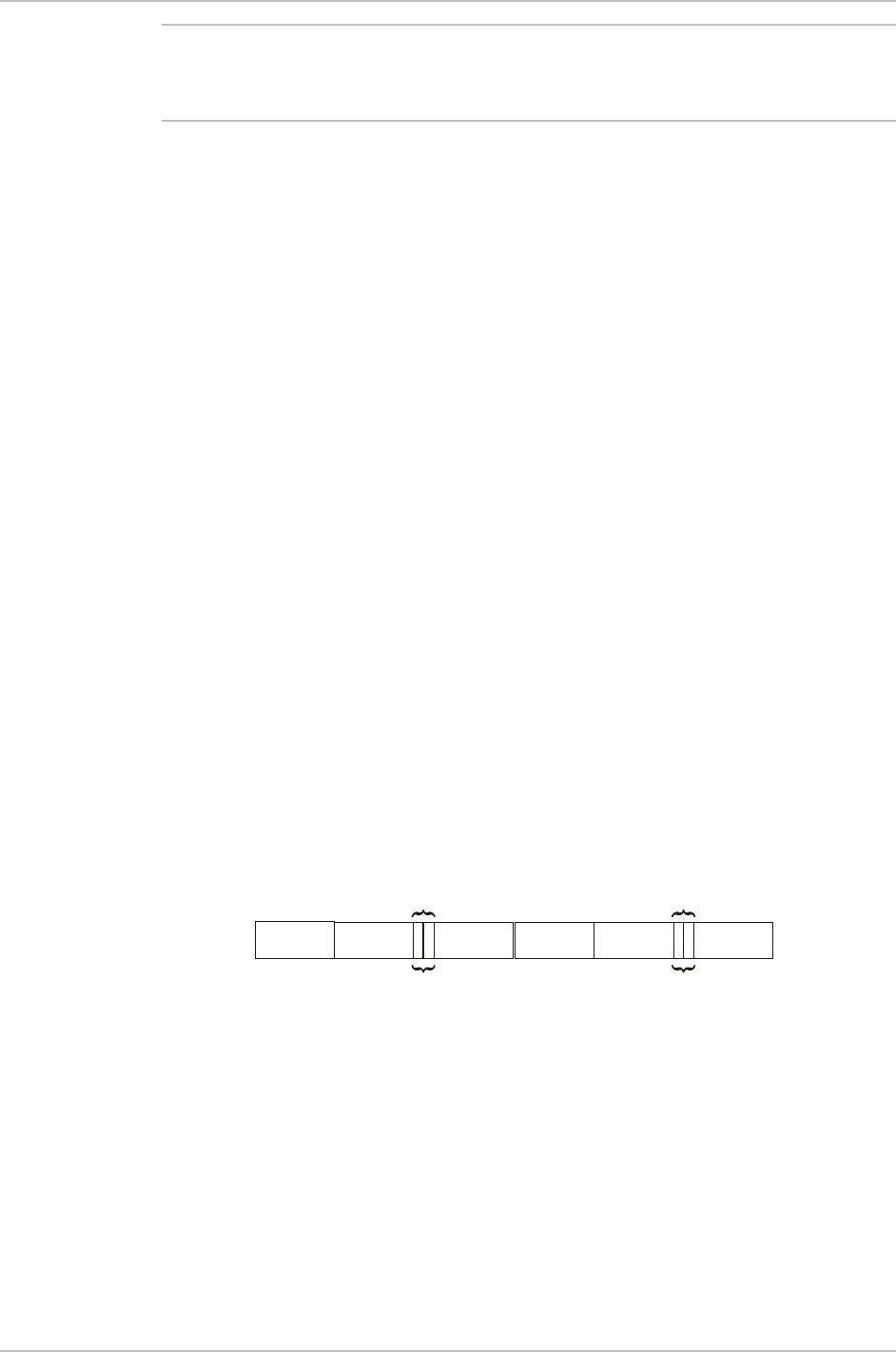
Chapter 1 Introduction IPmux-1/1E Installation and Operation Manual
1-12 Functional Description
If the jumpers enable phantom feeding, the TE mode cannot be selected as the
IPmux-1E operation mode. If phantom feeding is disabled, both NT and TE are valid
options.
FXS/FXO/E&M
The section describes the FXS/FXO/E&M operation modes, which are:
• E1 mode
• T1-D4 mode
• T1 ESF mode.
The IPmux-1E FXS/FXO/E&M operation modes allow IPmux to work opposite E1,
T1-D4, or T1-ESF. Two parameters are set internally when choosing one of the
options:
• A-Law/µ-Law
A-Law when E1 mode is selected
µ-Law is used in PCM CODEC when T1 (D4 or ESF) is selected.
• E1, T1-D4, and T1-ESF with CAS are structured differently in the TDM ↔IP
interworking function. A different structure must be used when working
opposite each one.
Timeslot Assignment in a Bundle
A bundle is a group of timeslots associated with a specific E1 or T1 channel.
IPmux-1/1E places individual or multiple TDM timeslots (up to 31 timeslots) into
bundles with a single IP address destination.
ISDN BRI
The timeslot (TS) assignment in a bundle for IPmux-1E with ISDN BRI (when
working opposite IPmux with E1/T1 or Megaplex) is assigned as follows:
B1
B2 D
First Channel
MSB Bits 7, 6 contain
D channel information
B1
B2 D
Second Channel
…
MSB Bits 7, 6 contain
D channel information
Figure 1-10. Timeslot Assignment in a Bundle, for IPmux-1E/ISDN
As shown in Figure 1-10, the four ISDN BRI channels consume 12 timeslots in the
bundle. The E1/T1 IPmux should work in framed mode (no CAS).
The three TS groups in the bundle are assigned according to ISDN BRI channel
numbers; the first group is assigned to the lowest ISDN BRI channel that is
enabled, etc.
Note



